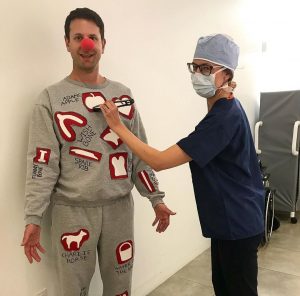Data journalist Betsy Ladyzhets discusses data journalism in the COVID era
May 6, 2021
Iona recently hosted a discussion with data journalist Betsy Ladyzhets, who has been analyzing gaps in data and misinformation about the pandemic that have occurred over the past year.
Ladyzhets founded the COVID-19 Data Dispatch (CDD,) a private publication whose sole intent is to inform Americans on COVID data and important news on the current pandemic. According to Ladyzhets, the main goal of the CDD is to share information and resources and broadly make data available. At the event, Ladyzhets described her day-to-day activities and the various other organizations that the COVID-19 Data Dispatch works with.
The CDD’s website is used as both a bulletin and forum. It provides visitors with information on hospitalization, antigens and vaccination data for the common person. The website also shares data amongst journalists, which allows them to combine the storytelling of journalism with facts and data backed by research from experts.
During the discussion, Ladyzhets described her process of communicating findings to the public. First, she gets her research either from the field or from interviewing experts. Then she cleans the information, which means she analyzes what she found and does more investigating on this information, in short, double checking her sources. For example, she collected research on populations that are vulnerable to COVID-19 from public health sources including the Centers for Disease Control and obtained solicited advice from the National Association of Social Workers. She took the information she gathered to clean, analyze, organize and pull together data on factors that make individuals vulnerable to COVID-19 such as health and socioeconomic factors, among others. Her research determined 27 factors that can make individuals vulnerable to COVID-19.
Ladyzhets also discussed the COVID Tracking Project, which collected and published COVID-19 testing data in the U.S. and its territories up until March 7. The main cause of this project was to fill in the gaps of information that the CDC had left unfilled due to administrative problems or problems with local and state governments in the past year. While the COVID Tracking Project has since slowed down with the new administration putting out more data about infections, testing and vaccination, the New York-based organization is still accepting volunteers to their cause.
Further, Ladyzhets discussed how there are common settings where COVID-19 may spread more rapidly, such as in factories and food processing facilities. People in these areas are clusteredtogether and may not always be wearing the proper gear or taking proper hygienic precautions.
One organization Ladyzhets highlighted was the Marshall Project, a group that works with the COVID-19 Data Dispatch and focuses on the criminal justice system in the United States. It hosts an investigative project that collects data on COVID-19 infections in state and federal prisons. Ladyzhets also mentioned a more heartfelt organization that has popped up during the pandemic, Missing Them. Missing Them is a New York City project that wishes to honor those who have succumbed to the virus. In New York alone there have been 35,000 fatalities commemorated by Missing Them.
Ladyzhets explained that there will always be people doubting the information coming out about the pandemic. However, people need to show their work, their resources and the experts to support the information they are putting out there. The CDD continues to publish issues every week.



